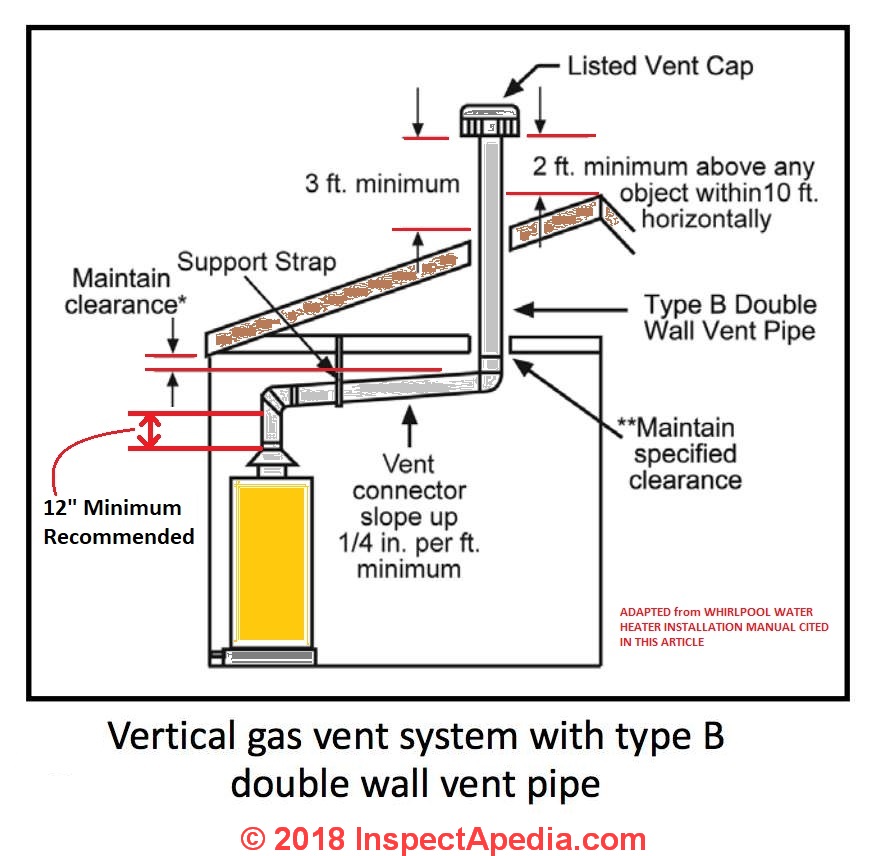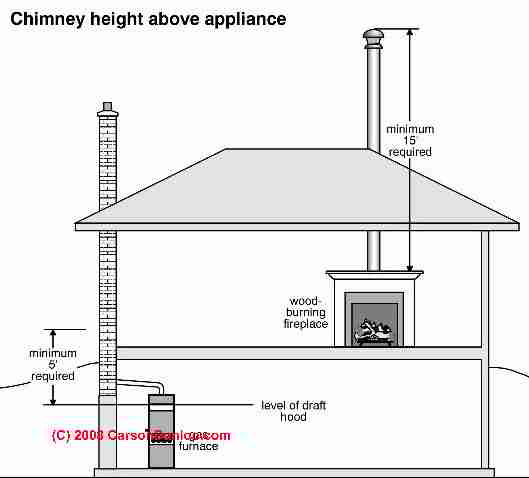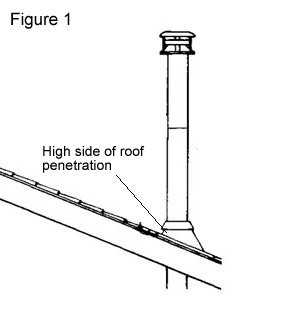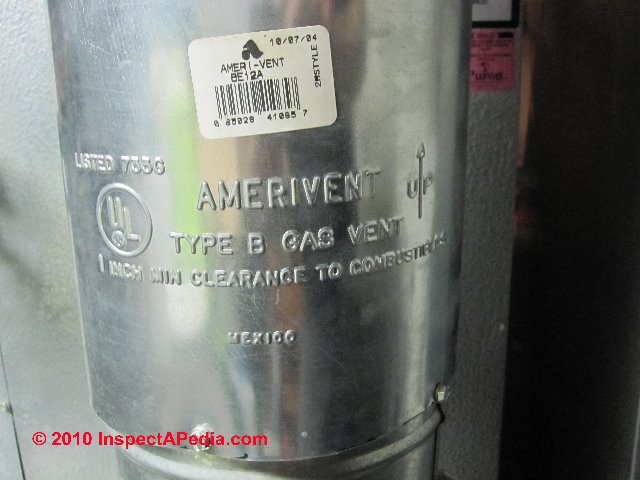Vent caps 12 and smaller may terminate a distance above the roof if 8 feet or more away from a vertical surface as follows.
Furnace vent pipe clearance height above roof.
Upc i 906 1 and 906 2.
Vent pipes should extend to outdoors above the building roof and should terminate vertically not less than 6 above the roof surface nor more than 24 and must be at least 12 from any vertical surface such as a nearby sidewall.
For the next example you have a shorter chimney height.
If the pipe is farther than 10 feet from the roof.
While one foot above the roof surface may meet the recommendations for fire clearances in one storey buildings or in buildings with heating equipment on the uppermost floor the total chimney height may be inadquate to establish sufficient and safe draft unless you extend the chimney.
Notes to the table above 1 measure on the up roof or shorter height side of the chimney 2 watch out.
For 18 feet of run you would have a rise of 72 inches.
Single wall vent pipes cannot pass through a ceiling floor firewall or wall.
6 minimum clearance from single wall vent pipe or flue vent connector to any combustible material.
If the previous calculation results in the required height of 64 inches we can see that the top of the pipe will not rise above the roof peak but would still meet the requirements of the rule.
This structure generally uses the furnace vent pipe through roofbecause the b venting pipe is designed in vertical manner.
The top of a chimney pipe must extend at least 2 feet above the peak of the roof if the pipe is within 10 feet of the peak.
The 1992 vent sizing tables require that all type b gas vents terminate above the roof with a listed cap or listed roof assembly in accordance with the manufacturer s instructions.
For gas fired water heater vents.
For gas vents or a type l vent this distance above the roof surface must be at least 2 ft 0 61m.
Vertical blue line along the left side of the chimney in our photo.
Above the roof plumbing vent height.
An exception is made for non combustible walls such as solid masonry or concrete.
Also known as the type b this vent is operating on the natural air convection.
Table illustrations of the required space between a direct or side wall vent for a gas fired heating appliance and building windows doors corners gas meter air intakes sidewalks balconies.
Table of type b vent rooftop clearance requirements.
The top of the chimney should be at least 3 ft 0 92 m above the roof surface.


























